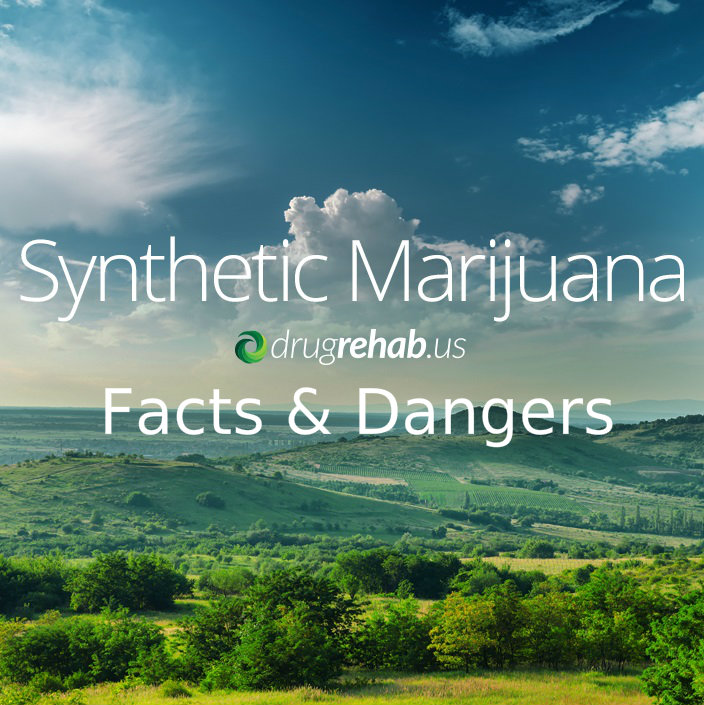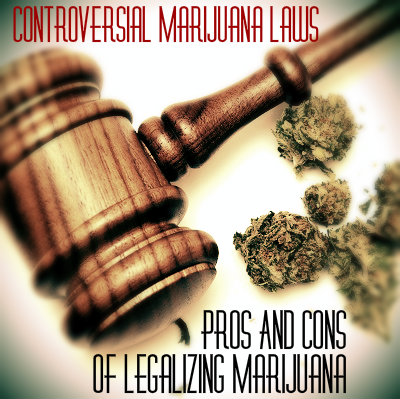03 Nov 2014
Drinking And Stress: A Dangerous Combination
Do you have a glass of wine to unwind in the evening after work? Do you reach for a cocktail after a stressful situation? Do you start to look forward to your evening drink earlier in the day when you’re feeling stressed? If you can say yes to any of these questions you are probably using alcohol to cope with stress. Drinking can make you feel momentarily looser, calmer and more relaxed, which is why many people use it to unwind. Doing so is a dangerous habit, though. You can make your stress worse by drinking and even risk becoming dependent on it.
Alcohol As Stress Relief
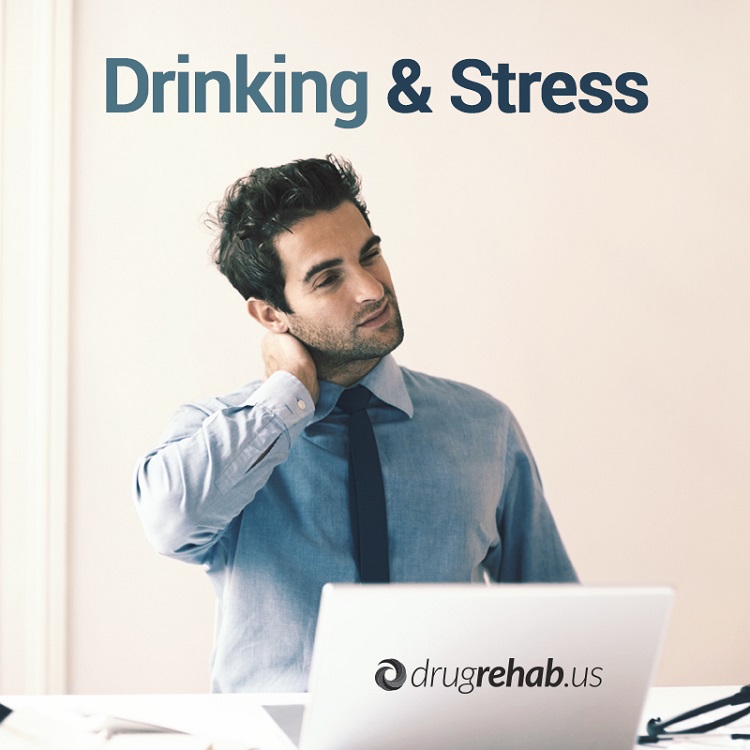 Many people turn to drinking to relax and ease the everyday stresses of modern life. Most of us are busier than ever. We have demanding jobs, and in a rough economy, holding onto those jobs becomes crucial. We often sleep poorly and get too little exercise. Our diets are not always the best. On top of all this you may have other stresses in your life: troubled relationships, financial problems, trauma, a death in the family, etc.
Many people turn to drinking to relax and ease the everyday stresses of modern life. Most of us are busier than ever. We have demanding jobs, and in a rough economy, holding onto those jobs becomes crucial. We often sleep poorly and get too little exercise. Our diets are not always the best. On top of all this you may have other stresses in your life: troubled relationships, financial problems, trauma, a death in the family, etc.
Why wouldn’t you want to drink to feel better? Hanging out with friends at the bar and having a few cocktails or beers are fun activities. It’s no wonder many of us engage in drinking to diffuse stress. In the short term it can make you feel better, especially when you add in the socializing time with friends. In the long term, however, drinking can send your stress levels spiraling upward.
The Stress-Drinking Cycle
Researchers have shown that stress and drinking effect each other and result in a cycle of interaction that leads to worsening stress. One study found that alcohol changes how the body copes with stress. Drinking can actually reduce the stress hormones your body produces in difficult situations, but it also prolongs the tension that you feel associated with stress.
On the flipside, stress changes the way alcohol impacts your mood. When you are stressed and you drink you will crave more alcohol. You will also find that the positive feelings you normally get from alcohol are reduced. This interaction between stress and alcohol that goes on inside your body means that drinking actually worsens your stress. As your stress gets more intense, you may drink more and the cycle continues. Drinking will never cure you of chronic stress.
If you continue to use alcohol as a means of relaxation and stress relief you run the risk of falling into the stress-alcohol cycle. And if you land in that cycle you could end up becoming dependent on alcohol. Alcoholism is a disease and it takes a serious toll on both the mind and the body. Becoming an alcoholic means more stress in addition to physical health problems.
Healthy Stress Relief
One of the ways in which friends can be good for your mental health is when you interact in a social group. Having good social support can make you more resilient in the face of stress. Hanging out with friends and family, talking, laughing and having a good time helps to relieve stress that you already have. If you can keep the social engagements, but take out the alcohol, or at least reduce it significantly, you will have a powerful prescription for managing your stress. Add to your social interactions a healthy diet, plenty of exercise, downtime engaging in fun activities and you have a healthy stress relief plan and no need for that next drink.
Do You Find Yourself Drinking More And More To Relieve Stress? Call Us Now For Help!
27 Oct 2014
Synthetic Marijuana Facts And Dangers
Of all the arguments against decriminalizing cannabis and the rise in popularity of e-cigarettes, the one that many have failed to discuss is the possibility of increased access to synthetic marijuana. This lab-produced cannabis has been popular with young people for many years. Although law enforcement has cracked down on synthetic products and lawmakers have tried to outlaw them, synthetic marijuana is making a comeback. Everyone, especially parents of teens and pre-teens, need to know about this drug and how dangerous it is.
What Is Synthetic Marijuana?
Synthetic marijuana, or synthetic cannabis, is a product made in a lab. It is not natural, but it is supposed to mimic the natural cannabis plant. Cannabis contains thousands of compounds, called cannabinoids, which produce the mind-altering effects people seek when smoking pot. There are many ways in which these compounds can be mimicked with lab-made compounds. Many of the fake compounds have been ruled illegal, but the manufacturers can still come up with more options, keeping their products technically legal.
Synthetic Marijuana Dangers
One of the main reasons these synthetic products are so dangerous is because the user never knows exactly what he is getting. Because the product changes so much, it is impossible to know what is in it. In addition to the cannabis-like compounds, there may be any number of other chemicals, and even herbs used to look like dried marijuana. Users have been made very ill from using synthetic products, while some have become addicted and some have even died.
Side Effects Of Synthetic Marijuana
The side effects of synthetic marijuana vary because of the unknown composition of the products, and they can range from mild to severe to fatal. Some of these side effects include:
- agitation
- severe anxiety
- paranoia
- vomiting
- nausea
- high blood pressure
- rapid heart rate
- muscle spasms
- tremors
- seizures
- hallucinations
- psychosis
- suicidal thoughts
- heart attack
- death
Synthetic cannabis has also been seen to cause withdrawal symptoms in frequent users and it can become addictive.
While the use of synthetic marijuana products has dropped overall as laws changed to try to outlaw them, they are making a comeback. One reason may be the rise in popularity of e-cigarettes. These are electronic devices that allow users to “vape” rather than smoke nicotine. They were designed to help smokers quit, but are increasingly being abused. E-cigarettes use vials of liquid with dissolved nicotine. Users exhale only water vapor. Those abusing them are using synthetic cannabinoids in the vials instead of nicotine in order to get a high. The scary thing is that the exhalation doesn’t smell like anything. The user can get high anywhere without anyone realizing it.
Latest Concern Of Synthetic Marijuana
Synthetic marijuana for e-cigarettes is just the latest concern when it comes to synthetic cannabis products. These products have been around for at least a decade and while their popularity was waning, teens are getting back into using them. Synthetic marijuana is no safer than it has ever been and both parents and teens need to be aware of the risks.
If You Are Concerned With Your Teen’s Substance Abuse, Call Us Now – We Are Here For You Anytime, Day Or Night
08 Oct 2014
Controversial Marijuana Laws
Americans have long debated legal recreational marijuana pros and cons, as well as the positives and negatives of medical marijuana. Never has the debate been more heated than now, when controversial laws have been passed in a number of states. More than 20 states have passed laws legalizing medical marijuana, or cannabis, while two states now allow legal recreational use of the drug.
Pros And Cons Of Legalizing Marijuana
Many people can see both sides of the issue, but it remains one that is highly controversial.
The Pros Of Recreational Marijuana
Last year, two states voted to legalize recreational marijuana: Washington and Colorado. More people in these states supported the legalization than were against it, and yet it remains highly controversial. Supporters of recreational cannabis being legal have several reasons they see the recent laws as positive.
Perhaps the biggest reason is that the states will have a new source of tax revenue. The idea is that state governments, many of which have big fiscal deficits, can regulate and heavily tax the legal pot sales. Other reasons supporters cite for legalizing the drug include greater freedoms for law-abiding citizens and a more modern attitude toward pot.
The Cons Of Decriminalizing Cannabis
Not everything about making marijuana legal for recreational use is positive. Critics have plenty to say about the new laws, probably more than the supporters. Legal marijuana poses a number of issues. The first is safety for individuals. Marijuana is a drug; it causes side effects and impairs judgment. It is also addictive and can lead to a lifelong dependence, especially with frequent use.
Legal marijuana is also a problem of public health. While individuals may now have the right to choose to use the drug, the rest of us are not able to choose not to be impacted. The most obvious risk is the possibility of impaired driving. Drunk drivers cause thousands of accidents, injuries and deaths every year. High drivers stand to cause even more.
Finally, there is the issue of the impact of legal marijuana on young people. Of all the cons for legalizing marijuana, this may be the most troubling. Although its use is to be restricted to adults, legal marijuana means that young people will inevitably have greater access to the drug. Currently, alcohol is the substance most abused by teens. This can be attributed to its legal status and ready availability. If every state legalizes pot, you can expect teens will get access to marijuana as well. The drug can cause long-term problems in young users including impaired memory and cognitive functioning.
Legalized marijuana will likely remain a controversial topic of debate throughout the country. Although two states have allowed recreational use of the drug for adults, the possible negative consequences of these moves are great. Exactly how the drug will start to effect young people and public health remains to be seen.
09 Sep 2014
The Long-Term Effects Of Underage Drinking
Prom, graduation and the start of summer vacation are all key times that trigger a rash of underage drinking. Unfortunately, teenage drinking is a year-round problem. Underage drinking can have some very serious immediate consequences.
Drinking too much can make a young person sick. It can lead to poor decision-making. It can lead to accidents. At the very least, drinking can make a young person feel awful the next day. What many young people fail to consider is that there are lasting consequences too.
Effects Of Long-Term Underage Drinking
Whether you’re a teen yourself or the parent of a teen, understand the long-term implications of underage drinking:
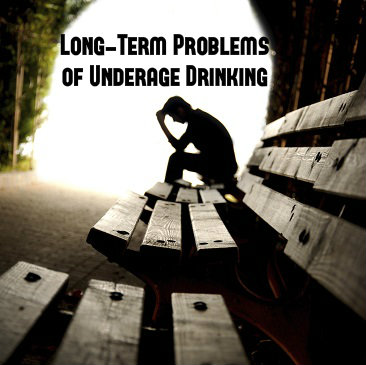 Legal Troubles – Most teens don’t think about getting caught before they drink, but many make bad choices when they do. These poor decisions can get a teen arrested for disorderly conduct, breaking and entering, drunk driving and more. The legal consequences can follow a young person for years, interfering with applications for college, scholarships or for jobs.
Legal Troubles – Most teens don’t think about getting caught before they drink, but many make bad choices when they do. These poor decisions can get a teen arrested for disorderly conduct, breaking and entering, drunk driving and more. The legal consequences can follow a young person for years, interfering with applications for college, scholarships or for jobs.
- Chronic Health Problems – When drinking starts at a young age and continues into adulthood, the accumulated effects can mean serious health problems. These may include pancreatitis, cirrhosis of the liver, hepatitis, high blood pressure, anemia and nutritional deficiencies. Drinking at a young age has also been shown to negatively impact the development of bone density, which can later result in osteoporosis
- The Brain – Drinking impacts the developing adolescent brain and causes problems that will continue into adulthood. It can cause permanent problems with memory and cause actual physical damage to the brain. The part of the brain involved in memory, the hippocampus, can be seen in scans to be smaller in people who drank a lot during adolescence than in their non-drinking peers. Other negative impacts include reduced attention spans, ability to think spatially and to plan.
- Accidents, Injuries, And Death – Drinking can lead to any number of accidents from drowning to falling to auto collisions. These have serious short-term consequences, but they can also impact a young person for the duration of their life. If an accident kills a young person, that life is over forever. For the underage drinker that causes a fatality, living with the guilt is a lifelong burden. Injuries may also stick with a young person and cause long-term health problems.
- Addiction – Drinking for the first time as a teen is a risk factor for developing an addiction or a substance abuse disorder later in life. In other words, underage drinkers put themselves at risk for having lifelong struggles with alcoholism or drug addiction.
- Family Problems -When young people drink it can impact the family in many negative ways. All of the terrible consequences that befall the teen drinker, like legal troubles, health problems and accidents, affect the dynamic of the family. Just one drinking incident with bad consequences can start a family crisis and everyone suffers.
The consequences of underage drinking are not difficult to imagine. Anyone who has ever had one drink too many knows just what can happen as a result. What most people, young and old, never think about are the long-lasting consequences. Teens who drink risk becoming addicted, damaging their brains, living with the guilt of hurting someone and having chronic health problems. With all of these and other possible negative outcomes, why would any young person choose to drink?
If You Know A Young Person Who Is Tempted To Drink Or Is Struggling – Call Us Now – We Can Help
Individuals with a mental disorder often have a co-existing condition, such as depression, anxiety, or often, a substance use disorder. Alcohol or drugs are frequently used to medicate the symptoms of a mental disorder. But the presence of a substance use disorder can make treatment more complicated and can delay the reduction in symptoms.
Altered Mismatch Negativity
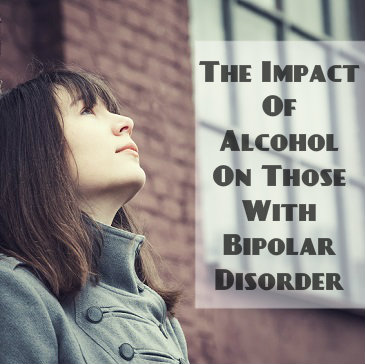 In an article appearing in Clinical Psychiatry News, researchers in Australia examined the impact of risky alcohol consumption among those with bipolar disorder, as compared with nondrinkers. The study found that there was a phenomenon known as “altered mismatch negativity” on electroencephalography (EEG) exams among those with risky drinking histories.
In an article appearing in Clinical Psychiatry News, researchers in Australia examined the impact of risky alcohol consumption among those with bipolar disorder, as compared with nondrinkers. The study found that there was a phenomenon known as “altered mismatch negativity” on electroencephalography (EEG) exams among those with risky drinking histories.
According to the article, mismatch negativity is the brain’s automatic electrical activity that responds to auditory stimulation when there is a change in sounds. When there is a reduction in mismatch negativity, it indicates an impairment of NMDA-receptor activation. The NMDA receptors were already thought to be impacted by both alcohol use and in patients with bipolar disorder.
To measure the mismatch negativity in individuals with risky alcohol use and bipolar disorder, the researchers recruited 42 bipolar disorder patients and 34 control subjects. The participants were between the ages of 16 and 30. The participants were subjected to EEG exams with auditory stimuli.
Among the participants, 16 bipolar patients engaged in risky alcohol-related behaviors, as well as 14 of the control subjects. Of the remaining patients, 26 of the bipolar subjects and 20 of the control subjects did not engage in risky drinking.
Misuse Of Alcohol In Those Who Are Bipolar
The researchers found that the misuse of alcohol was a strong predictor of attenuations in mismatch negativity. The effect was significantly more profound among those diagnosed with bipolar disorder. The researchers believe that the alcohol may play an antagonistic role on the NMDA/glutamatergic system. This is consistent with the growing use of glutamatergic agents to treat bipolar disorder. Limiting alcohol consumption may be an important step when beginning treatment with glutamatergic agents.
The article notes recent studies showing that bipolar males between the ages of 20 and 30 have the highest weekly substance use. In more general terms, those who are diagnosed with bipolar disorder before adulthood have lifetime alcohol use rates of up to 70 percent.
The researchers note multiple potential limitations on their findings. For instance, the youths included in the study are not able to legally buy alcohol in Australia, so the underage drinkers may have had incentive to understate drinking behavior.
The study adds to the body of evidence that shows that bipolar disorder patients are particularly susceptible to the dangers of risky alcohol consumption.
Discover Why Integrating Medical And Mental Health Treatment Is Crucial
The effects of synthetic marijuana are as varied as the substances that make up this broad category of drugs. Makers of synthetic marijuana products attempt to create something that is legal and that also mimics the active compounds in cannabis. Of course, most of these manufacturers are more interested in profits than safety and the ill effects of using them are multiple. Popular with young people, these products have finally come to the attention of lawmakers who have attempted to put a stop to their sale. Drug makers always find a way around the laws, however, so it is important for parents and other adults to be aware of synthetic marijuana and how harmful it can be.
What Is Synthetic Marijuana?
 Fortunately for public health, most of these products have been outlawed, but they have not gone away. Marijuana comes from a plant called cannabis. It contains thousands of natural compounds, some of which have mind-altering abilities. It is for these compounds, called cannabinoids, that people smoke marijuana. They give the user a pleasant, sleepy, relaxed feeling. As a mind-altering, psychoactive product, marijuana is illegal in most places.
Fortunately for public health, most of these products have been outlawed, but they have not gone away. Marijuana comes from a plant called cannabis. It contains thousands of natural compounds, some of which have mind-altering abilities. It is for these compounds, called cannabinoids, that people smoke marijuana. They give the user a pleasant, sleepy, relaxed feeling. As a mind-altering, psychoactive product, marijuana is illegal in most places.
In an attempt to profit from the demand for marijuana, manufacturers have developed products that contain synthetic versions of the natural cannabinoids. They spray the formula onto some type of dried plant and sell it as incense, potpourri or even cleaners. These products are labeled in a way that makes it seem as if it is not a drug to be smoked. Of course, the intention is exactly that. Young people are enticed to buy it and smoke it, and then they suffer the synthetic marijuana side effects.
How Is Synthetic Marijuana Dangerous?
Real marijuana poses health risks, but the synthetic versions can be even more harmful. The main problem is that you can never be sure what is in the product. Marijuana is a natural product that is dried to be smoked. Synthetic versions may contain a whole host of compounds that the makers do not reveal. Some of the synthetic marijuana health effects that have been seen in users include anxiety, paranoia, shaking, emotional instability, hallucinations, panic attacks, dizziness, hot flashes and convulsions.
After too many teens and young adults were harmed from using synthetic marijuana products, lawmakers took action to ban the substances used to make them. Unfortunately, there are almost infinite possibilities when it comes to making synthetic variations of cannabinoids. When one substance is banned, drug manufacturers simply come up with another one. In most states, you can no longer buy the products that were disguised as potpourri or herbal smoking blends, but that does not mean synthetic marijuana has disappeared. Some people are still using it and are experiencing the ill effects. Be aware of this lab-produced drug and make sure that your children understand its risks.
Learn More About Synthetic Drugs And Their Dangers!
Buprenorphine is a drug that can be used to treat opioid addiction. It comes in two formulations called Subutex and Suboxone. Although these medications are designed and prescribed to help people overcome addiction, some people abuse them to get high. If you love someone battling opioid addiction, pay close attention and make sure he is not abusing the medication that is supposed to be helping him heal.
What Is Buprenorphine?
Buprenorphine is a synthetic opioid drug that blocks withdrawal symptoms. When the addict takes it, he can stop using heroin or painkillers without experiencing the withdrawal that leads many addicts back to substance abuse. Subutex contains buprenorphine alone and is supposed to be used first and for a short period of time. Suboxone includes a second drug, naloxone, which is intended to prevent abuse. It blocks the high that buprenorphine can impart to the user and is designed to be used after Subutex.
Can Someone Abuse Buprenorphine?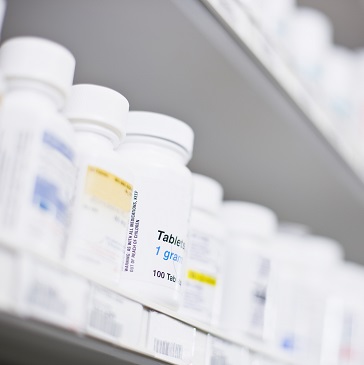
Buprenorphine was the first medication that the Food and Drug Administration allowed to be dispensed from doctors’ offices thanks to its successes in treating opioid addicts. Not all stories of buprenorphine use have been good, though. Some people have abused the medications, and although it is supposed to be impossible to overdose on, there have been deaths associated with Suboxone and Subutex abuse.
It is more difficult to get a high from buprenorphine, and also more difficult to overdose, than other opioids. It is possible, though, and some abusers are desperate enough to use this medication like an illegal drug. Dealers are making a killing selling black market buprenorphine, both to people wanting to abuse it and those wanting to use it as a treatment.
How Can I Tell Someone Is Abusing Buprenorphine?
It is important that you are vigilant with your loved one who has been prescribed buprenorphine. Not everyone realizes that there are risks associated with abusing it. Many are told that you can’t overdose on it, but this isn’t true. Make sure your loved one understands this risk and watch out for signs that he has started abusing his medication.
If you have lived with a drug addict you already know what many of the signs of abuse are. Maybe he has started:
- sleeping more
- missing days of work
- borrowing or stealing money
- having mood swings that seem inexplicable
Watch out for all the usual signs of drug abuse that you have seen before. If he starts acting like he used to when he was using, you should be concerned.
There are also specific symptoms associated with abusing buprenorphine medications. Side effects of the drugs that are possible include:
- flu-like symptoms
- sweating
- headaches
- mood swings
- nausea
- difficulty sleeping
Watch for indications that any of these are getting worse. If he is using more of the medication than directed, the side effects could be intensified. Other signs may include:
- hair loss
- emotional instability
- apathy
- a loss of interest in sex
- watery eyes
- muscle pains and cramping
- impaired memory
- depression or anxiety
Buprenorphine can be a powerful aid in helping opioid addicts get clean and stay clean, but there are risks that are often overlooked. As someone who loves an opioid addict, you should encourage him to use all the tools at hand to beat his addiction, including buprenorphine. But you should also be careful and look for signs that he has turned to his prescription medication for a high. If he has, confront him with love, understanding and patience, and help him to get back on the road to recovery.
If You Or Someone You Love Is Struggling With Addiction – Call Us Now – We Are Here For You 24/7
22 Aug 2014
Heavy Drinking Tied To Metabolic Syndrome
Metabolic syndrome is the term that doctors and public health officials use to describe a collection of health concerns that significantly increase your chances of dying from heart disease or certain other causes. While some of the risks associated with heavy alcohol consumption are well established, researchers know relatively little about the potential connection between heavy drinking and the development of this syndrome. In a study published in May 2014 in the journal Alcoholism: Clinical & Experimental Research, researchers from Japan’s Hyogo College of Medicine assessed the impact that excessive alcohol intake has on the metabolic syndrome risks of middle-aged men.
Metabolic Syndrome
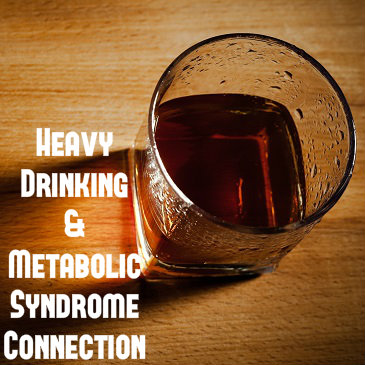 Metabolic syndrome gets its name because it involves changes in your normal metabolism, or the processing of chemical reactions inside the brain and body. Strictly speaking, the syndrome is not an illness; instead, it is a collection of risk factors for illness.
Metabolic syndrome gets its name because it involves changes in your normal metabolism, or the processing of chemical reactions inside the brain and body. Strictly speaking, the syndrome is not an illness; instead, it is a collection of risk factors for illness.
Specific factors involved in the onset of metabolic syndrome can include having a tendency to carry significant amounts of excess weight around your midsection, having a high count of a bloodborne fat called triglyceride, having low blood levels of HDL or “good” cholesterol (which removes excess LDL or “bad” cholesterol from your bloodstream), having abnormally high blood glucose or blood sugar levels and having unusually high blood pressure. As a rule, doctors consider making a diagnosis in people affected by a minimum of three of these risk factors.
Compared to the general population, a person with metabolic syndrome has a roughly 100 percent greater chance of developing some form of heart disease, the National Heart Lung and Blood Institute reports. The presence of the syndrome also increases the odds for developing type 2 diabetes by about 400 percent. Physical concerns most commonly associated with a metabolic syndrome diagnosis include maintaining a sedentary lifestyle and carrying enough body weight to qualify as overweight or obese. Other potential concerns include having an unusual resistance to the blood sugar-lowering effects of a human hormone called insulin, being older and having a genetic predisposition toward risk factors for the condition.
Excessive Or Heavy Drinking
Heavy drinking is a public health term used to describe excessive alcohol consumption on any given day or over the course of any given week. Men partake in this form of consumption when they drink more than four servings of alcohol per day or more than 14 servings per week. Women partake in heavy drinking when they consume more than three servings of alcohol per day or more than seven servings per week. Some heavy drinkers also qualify as binge drinkers by consuming enough alcohol to reach a legally intoxicated state in a single, fairly brief bout of alcohol intake. Participation in heavy drinking is conclusively linked with increased risks for developing diagnosable problems with alcohol abuse and/or alcoholism.
Examining The Connection Between Heavy Drinking And Metabolic Syndrome
In the study published in Alcoholism: Clinical & Experimental Research, the Japanese researchers used an assessment of a group of middle-aged men to compare the risks for metabolic syndrome among people in this age group who don’t drink alcohol, occasionally drink heavily and regularly drink heavily. For the purposes of the study, heavy drinking was defined as the consumption of at least 66 grams (2.3 oz) of pure alcohol on any given day when alcohol intake occurred. This is equivalent to the amount of alcohol in 3.8 standard drinks.
The researchers concluded that, compared to middle-aged men who don’t drink, men in this age group who occasionally participate in heavy drinking have a roughly 94 percent higher chance of developing metabolic syndrome. They also concluded that middle-aged men who regularly participate in heavy drinking have a roughly 48 percent higher chance of developing the syndrome. The occasional heavy drinkers are considerably more likely than their non-drinking counterparts to carry significant amounts of excess weight around their midsections. The regular heavy drinkers are considerably less likely than their non-drinking counterparts to have high blood sugar levels.
It may seem odd that occasional heavy drinkers apparently have substantially higher chances of developing metabolic syndrome than regular heavy drinkers. The study’s authors tentatively attribute this counterintuitive finding to the lowered risks for high blood sugar among people who regularly consume excessive amounts of alcohol, as well as to the increased risks for abdominal obesity among people who occasionally consume excessive amounts of alcohol. The authors also specifically note that the cardiovascular (heart and blood vessel) risks for metabolic syndrome apply to both occasional and regular heavy drinkers.


